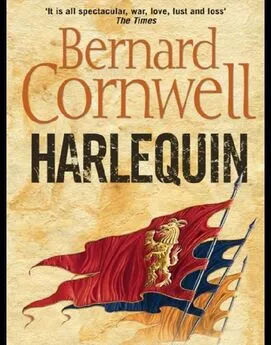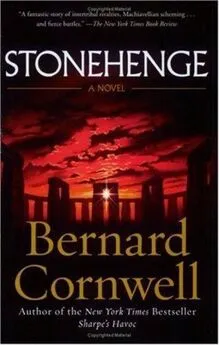Bernard Cornwell - The Grail Quest 2 - Vagabond
- Название:The Grail Quest 2 - Vagabond
- Автор:
- Жанр:
- Издательство:неизвестно
- Год:неизвестен
- ISBN:нет данных
- Рейтинг:
- Избранное:Добавить в избранное
-
Отзывы:
-
Ваша оценка:
Bernard Cornwell - The Grail Quest 2 - Vagabond краткое содержание
In Harlequin, Thomas of Hookton travelled to France as an archer and there discovered a shadowy destiny, which linked him to a family of heretical French lords who sought Christendom′s greatest relic.
Having survived the battle of Crécy, Thomas is sent back to England, charged with finding the Holy Grail. But Thomas is an archer and when a chance comes to fight against an army invading northern England he jumps at it. Plunged into the carnage of Neville′s Cross, he is oblivious to other enemies who want to destroy him. He discovers too late that he is not the only person pursuing the grail, and that his rivals will do anything to thwart him.
After hunting and wounding him, Thomas′s enemies turn him into a fugitive. Fleeing England, he travels to Normandy, determined to rescue Will Skeat, his old commander from Harlequin. Finally Thomas leads his enemies back to Brittany, where he goes to discover an old love and where his pursuers at last trap their reluctant pilgrim.
Vagabond is a vivid and realistic portrait of England at a time when the archer was king of Europe′s battlefields.
The Grail Quest 2 - Vagabond - читать онлайн бесплатно ознакомительный отрывок
Интервал:
Закладка:
'God damn their bloody souls.'
'Then we follow them,' Lord Percy said.
'They move faster than us,' the Archbishop said. He had taken off his helmet and its leather liner had left an indentation in his hair, circling his skull.
'We'll slaughter their foot,' another lord said wolfishly.
'Damn their infantry,' the Archbishop snapped, impatient with such foolery. He wanted to capture the Scottish lords, the men mounted on the swiftest and most expensive horses, for it was their ransoms that would make him rich, and he especially wanted to capture those Scottish nobles like the Earl of Menteith who had sworn fealty to Edward of England and whose presence in the enemy army proved their treachery. Such men would not be ransomed, but would be executed as an example to other men who broke their oaths, but if the Archbishop was victorious today then he could lead this small army into Scotland and take the traitors' estates. He would take everything from them: the timber from their parks, the sheets from their beds, the beds themselves, the slates off their roofs, their pots, their pans, their cattle, even the rushes from their streambeds. 'But they won't attack again,' the Archbishop said.
'Then we shall have to be clever,' Lord Outhwaite put in cheerfully. The other lords looked suspiciously at Outhwaite. Cleverness was not a quality they prized for it hunted no boars, killed no stags, enjoyed no women and took no prisoners. Churchmen could be clever, and doubtless there were clever fools at Oxford, and even women could be clever so long as they did not flaunt it, but on a battlefield? Cleverness?
'Clever?' Lord Neville asked pointedly.
'They fear our archers,' Lord Outhwaite said, 'but if our archers are seen to have few arrows, then that fear will go and they might well attack again.'
'Indeed, indeed ...' the Archbishop began and then stopped, for he was quite as clever as Lord Outhwaite, clever enough, indeed, to hide how clever he was. 'But how would we convince them?' he asked.
Lord Outhwaite obliged the Archbishop by explain-ing what he suspected the Archbishop had already grasped. 'I think, your grace, that if our archers are seen scavenging the field for arrows then the enemy will draw the correct conclusion.'
'Or, in this case,' the Archbishop laid it on broadly for the benefit of the other lords,
'the incorrect conclusion.'
'Oh, that's good,' one of those other lords said warmly.
'It could be made even better, your grace,' Lord Outhwaite suggested diffidently, 'if our horses were brought forward? The enemy might then assume we were readying ourselves to flee?'
The Archbishop did not hesitate. 'Bring all the horses up,' he said.
'But ...' A lord was frowning.
'Archers to scavenge for arrows, squires and pages to bring up the horses for the menat-arms,' the Arch-bishop snapped, understanding completely what Lord Outhwaite had in mind and eager to put it into effect before the enemy decided to withdraw northwards. Lord Outhwaite gave the orders to the bowmen him-self and, within a few moments, scores of archers were out in the space between the armies where they gathered spent arrows. Some of the archers grumbled, call-ing it tomfoolery because they felt exposed to the Scottish troops who once again began to jeer them. One archer, farther forward than most, was struck in the chest by a crossbow quarrel and he fell to his knees, a look of astonishment on his face, and choked up blood into his cupped palm. Then he began weeping and that only made the choking worse and then a second man, going to help the first, was hit in the thigh by the same crossbow. The Scots were howling their derision at the wounded men, then cowered as a dozen English archers loosed arrows at the lone crossbowman. 'Save your arrows! Save your arrows!' Lord Outhwaite, mounted on his horse, roared at the bowmen. He galloped closer to them. 'Save your arrows! For God's sake! Save them!' He was bellowing loud enough for the enemy to hear him, then a group of Scotsmen, tired of sheltering from the archers, ran forward in an evident attempt to cut off Lord Outhwaite's retreat and all the English scampered for their own line. Lord Outhwaite put back his spurs and easily evaded the rush of men who contented themselves with butchering the two wounded archers. The rest of the Scots, seeing the English run, laughed and jeered. Lord Outhwaite turned and gazed at the two dead bowmen. 'We should have brought those lads in,' he chided himself. No one answered. Some of the archers were looking resentfully at the men-at-arms, supposing that their horses had been brought up to aid their flight, but then Lord Outhwaite barked at groups of archers to get behind the men-at-arms. 'Line up at the back!
Not all of you. We're trying to make them believe we're short of arrows and if you didn't have arrows you wouldn't be standing out in front, now would you? Hold the horses where they are!' He shouted this last order to the squires, pages and servants who had brought up the destriers. The men-at-arms were not to mount yet, the horses were simply being held at the back of the line, just behind the place where half the archers now formed. The enemy, seeing the horses, must conclude that the English, short of arrows, were contemplating flight.
And so the simple trap was baited.
A silence fell on the battlefield, except that the wounded were moaning, ravens calling and some women crying. The monks began to chant again, but they were still on the English left and to Thomas, now on the right, the sound was faint. A bell rang in the city.
'I do fear we're being too clever,' Outhwaite re-marked to Thomas. His lordship was not a man who could keep silent and there was no one else in the right-hand division convenient for conversation and so he selected Thomas. He sighed. 'It doesn't always work, being clever.'
'It worked for us in Brittany, my lord.'
'You were in Brittany as well as Picardy?' Lord Outhwaite asked. He was still mounted and was gazing over the men-at-arms towards the Scots.
'I served a clever man there, my lord.'
'And who was that?' Lord Outhwaite was pretending to be interested, perhaps regretting that he had even begun the conversation.
'Will Skeat, my lord, only he's Sir William now. The King knighted him at the battle.'
'Will Skeat?' Lord Outhwaite was engaged now. 'You served Will? By the good Lord, you did? Dear William. I haven't heard that name in many a year. How is he?'
'Not well, my lord,' Thomas said, and he told how Will Skeat, a commoner who had become the leader of a band of archers and men-at-arms 'vho were feared wherever men spoke French, had been grievously wounded at the battle in Picardy. 'He was taken to Caen, my lord.'
Lord Outhwaite frowned. 'That's back in French hands, surely?'
'A Frenchman took him there, my lord,' Thomas explained, 'a friend, because there's a doctor in the city who can work miracles.' At the end of the battle, when men could at last think they had lived through the horror, Skeat's skull had been opened to the sky and when Thomas had last seen him Skeat had been dumb, blind and powerless.
'I don't know why the French make better physicians,' Lord Outhwaite said in mild annoyance, 'but it seems they do. My father always said they did, and he had much trouble with his phlegm.'
'This man's Jewish, my lord.'
'And with his shoulders. Jewish! Did you say Jewish?' Lord Outhwaite sounded alarmed. 'I have nothing against Jews,' he vvent on, though without conviction, 'but I can think of a dozen good reasons why one should never resort to a Jewish physician.'
'Truly, my lord?'
'My dear fellow, how can they harness the power of the saints? Or the healing properties of relics? Or the efficacy of holy water? Even prayer is a mystery to them. My mother, rest her soul, had great pain in her knees. Too much praying, I always thought, but her physician ordered her to wrap her legs in cloths that had been placed on the grave of St Cuthbert and to pray thrice a day to St Gregory of Nazianzus and it worked! It worked! But no Jew could prescribe such a cure, could he? And if he did it would be blasphemous and bound to fail. I must say I think it most ill advised to have placed poor Will into a Jew's hands. He deserves better, indeed he does.' He shook his head reprovingly. 'Will served my father for a time, but was too smart a fellow to stay cooped up on the Scottish border. Not enough plunder, you see? Went off on his own, he did. Poor Will.'
'The Jewish doctor,' Thomas said stubbornly, 'cured me.'
'We can only pray.' Lord Outhwaite ignored Thomas's claim and spoke in a tone which suggested that prayer, though needful, would almost certainly prove useless. Then he cheered up suddenly. 'Ah! I think our friends are stirring!' The Scottish drums had begun to beat and all along the enemy's line men were hitching up shields, dropping visors or hefting swords. They could see that the English had brought their horses closer, presumably to aid their retreat, and that the enemy line was apparently stripped of half its archers, so they must have believed that those bowmen were perilously short of missiles, yet the Scots still chose to advance on foot, knowing that even a handful of arrows could madden their horses and throw a mounted charge into chaos. They shouted as they advanced, as much to hearten themselves as put fear in the English, but they became more confident when they reached the place where the bodies lay from their last charge and still no arrows flew.
'Not yet, lads, not yet.' Lord Outhwaite had taken command of the archers on the right wing. The Lords Percy and Neville commanded here, yet both were con-tent to allow the older man give orders to the bow-men while they waited with their men-at-arms. Lord Outhwaite glanced constantly across the field to where the Scots advanced on the English left wing, where his own men were, but he was satisfied that the hollow of ground would go on protecting them just as the stone wall shielded the centre. It was here on the side of the ridge closest to Durham where the Scots were strongest and the English most vulnerable. 'Let them get closer,' he warned the archers. 'We want to finish them off once and for all, poor fellows.' He began tapping his fingers on his saddle's pommel, keeping time with the few remaining big Scottish drums and waiting until the front rank of Scots was only a hundred paces away. 'Foremost archers,' he called when he judged the enemy was close enough, 'that's you fellows in front of the line! Start shooting!'
About half the archers were in plain sight in the army's front and they now drew their bows, cocked the arrows up into the air and loosed. The Scots, seeing the volley coming, began to run, hoping to close the range quickly so that only a handful of the arrows would hurt.
'All archers!' Lord Outhwaite boomed, fearing he had waited too long, and the archers who had been concealed behind the men-at-arms began to shoot over the heads of the troops in front. The Scots were close now, close enough so that even the worst archer could not fail to hit his mark, so close that the arrows were again piercing through mail and bodies, and strewing the ground with more wounded and dying men. Thomas could hear the arrows striking home. Some clanged off armour, some thumped into shields, but many made a sound like a butcher's axe when it slaughtered cattle at winter's coming. He aimed at a big man whose visor was raised and sent an arrow down his throat. Another arrow into a tribesman whose face was contorted with hate. Then an arrow's pock split on him, spinning the broken missile away when he released the string. He plucked the feathered scraps from the string, took a new arrow and drove it into another bearded tribesman who was all fury and hair. A mounted Scotsman was encouraging his men forward and then he was flailing in the saddle, struck by three arrows and Thomas loosed another shaft, striking a man-at-arms clean in the chest so that the point ripped through mail, leather, bone and flesh. His next arrow sank into a shield. The Scots were floundering, trying to force themselves into the rain of death. 'Steady, boys, steady!' an archer called to his fellows, fearing they were snatching at the strings and thus not using the full force of their bows.
Читать дальшеИнтервал:
Закладка:





![Робин Хобб - Странствия Шута [Fool’s Quest]](/books/1086209/robin-hobb-stranstviya-shuta-fool-s-quest.webp)

